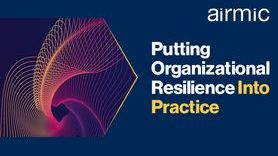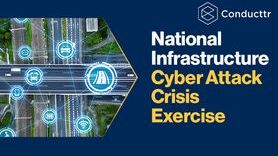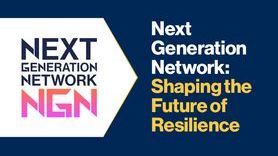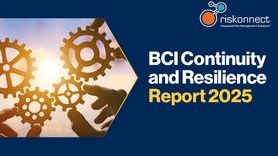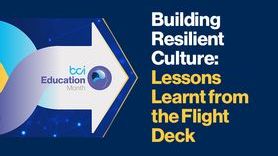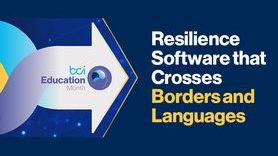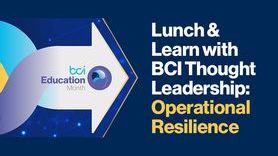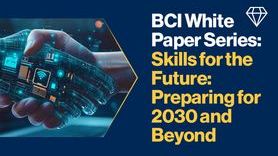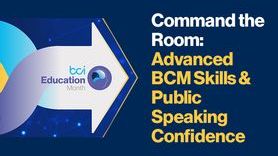2023 end-of-year perspectives from BCI Women in Resilience (WiR)
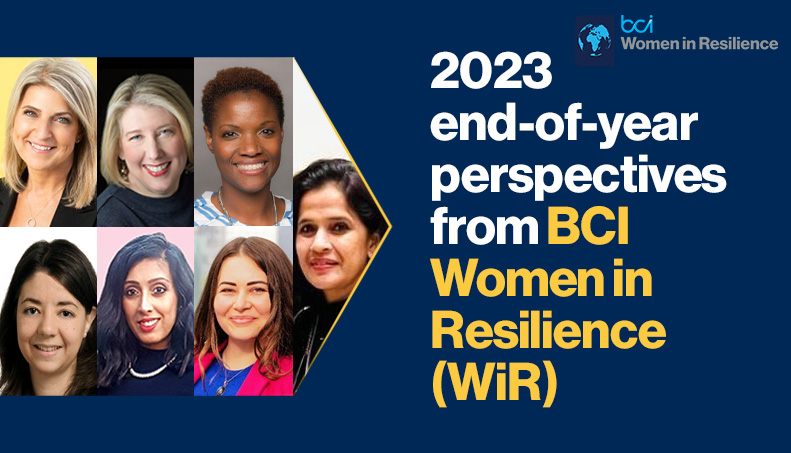
The past few years have been challenging and 2023 was no different. So, as we near the end of 2023, who better to get insights from than some leading women in the business continuity and resilience profession.
Here, these women share some invaluable insights and learnings from the various threats, risks, and issues they have faced this year. While they have not conferred with each other, you will note some common themes, especially around their advice to new resilience professionals and their outlook on the threats for 2024.
In this article I, Ratna Pawan (Canada), talk to Margaret Millett (USA), Rina Singh (UK), Lisa Jones (USA), Treena Reilkoff (Canada), Macarena Rodriguez (Spain), and Milena Maneva (UK).
As a risk professional, is there any one or two key learnings or observations from the year that you would like to share?
Margaret Millett (MM): There always seems to be new global threats around the corner and everyone is vulnerable to them. In 2023, climate change continued to become more disruptive and deadly. Temperature records were toppled, globally and regionally. Storms, floods, heatwaves, and wildfires caused devastation. The world must urgently cut greenhouse gas emissions and increase adaptation efforts to protect vulnerable populations.
Rina Singh (RS): Globally, we all share the ideal pursuit of a sustainable future and that’s a start to making our world more resilient.
Lisa Jones (LJ): I’ve noticed that some organizations are taking a lax approach to resilience as we move away from the heightened state of COVID. I think part of the reason why is because the pandemic uprooted how we lived our lives, and we want to move as far away as possible from that time. As professionals, we must highlight the great things our profession was able to accomplish, yet not lose sight of the importance of sustaining resilience.
Treena Reilkoff (TR): Workplace mental health, harassment, and workplace violence are topics in 2023 that are beginning to demand resilient risk mitigation attention. Resilient risk mitigation requires identifying and assessing root causation, as well as understanding the impact of trauma and mental health in our workplaces for continency planning. We all demonstrated “trauma resiliency” post-pandemic and are still building our protective resilient web for the next critical incident.
Macarena Rodriguez (MR): Do not underestimate any event that may cause a crisis. For example, you read the news about another volcano erupting in an area far away. It may be far away but the cloud might affect cargo flights, which may result in your supply chain being affected and your organization could be in trouble. In my opinion, risk professionals are disasters’ news hunters too.
Milena Maneva (MiM): One significant observation I've gleaned amid the challenges of 2023 is the pivotal role of adaptability and perseverance. These are crucial skills in navigating unprecedented disruptions.
What is the one event in 2023, good or bad, that impacted you personally and that you would like to remember?
MM: I was able to visit parts of the world which remind me how fortunate I am. I am a woman with a master’s degree, a global career, I am the owner of my home, have the ability to move freely, a savings account and retirement funds in my name only.
RS: I navigated a complex tapestry of change going from womanhood to motherhood. Feeling perpetually tired physically and mentally has been the crux of my existence this past year and, despite the highs and lows of this experience, 2023 reminds me of how much I have achieved both personally and professionally. It’s been a year of learning that I am indeed, a very resilient woman.
LJ: The one event that I will remember in 2023 is being able to connect in-person with colleagues I originally connected with online. It’s amazing how we were able build our networks through online engagement but, now that we can travel more, it’s refreshing to meet in person.
TR: Escalation of violence and crime is everywhere. Direct and indirect threats of serious harm to myself and my family members reaffirmed the importance of situational awareness, tactical empathy, and communication as powerful risk mitigation strategies and conflict de-escalation tools.
MR: The rise of AI and how it is already affecting us at work and in our personal lives, for good and for bad. It is difficult to be prepared for something that is progressing so quickly in many ways.
MiM: Reflecting on the year, the resilience and vulnerability exhibited by communities and my network in the face of adversity stands out to me. Witnessing the strength and solidarity among people enduring challenges has been truly inspiring and impactful personally. The event that impacted me most is the continuing conflict in Gaza and Israel. It is devastating to hear how people in 2023 have to put up with death and constant threat to life.
If you had to summarise 2023 by way of a quote, what would it be for you?
MM: On 29 November, I watched the funeral of Rosalyn Carter, former First Lady of the United States. One of her famous quotes is: ‘There is nothing more important than a good, safe, secure home.’ When I hear the news on the radio, I know this is not true for everyone in the world.
RS: ‘Clouds come floating into my life no longer to carry rain or usher storm but to add colour to my sunset sky’- Rabindranath Tagore. This quote has served me well for so many years and, when I think of how to summarise 2023, this came straight to my mind.
LJ: This bible verse reminds me to think before reacting and to show empathy to others. “My dear brothers and sisters, take note of this: Everyone should be quick to listen, slow to speak, and slow to become angry,” James 1:19.
TR: “SRSR” self-reflection strengthens resiliency. In the face of crisis, we discover the crucible for resilient growth and self-reflection. Adversity is not just a challenge, it's an opportunity to forge strength and mitigate risks. Without experiencing hardship, our potential for growth remains untapped.
MR: The calm before the storm. I have a feeling that 2024 is going to be a complex year in many aspects: socially, politically, climate change related, etc.
MiM: Resilience is not merely enduring hardships but flourishing despite them. Keep your door open to new opportunities, take a leap of faith, and embrace the spirit of perseverance and growth amidst difficulties.
More and more women are entering the resilience profession. What is your advice to them?
MM: Changing careers can be a challenging and time-consuming process, but it is important to stay positive and persistent. Keep a positive attitude and do not be afraid to ask for help or advice along the way. Do not give up - securing a career that allows you to do what you do best every day is worth it for your health and wellbeing in the long run.
RS:
- Network - get to know others in your profession
- Set boundaries at work (your time matters, make sure people respect this)
- Your voice is unique so take the opportunity to showcase this whenever you can.
LJ: Network, network, network! We are privileged to be in an industry where colleagues are eager to share their knowledge. Find a local or global industry organization to be a part of and become active.
TR: Use the innate power of female intuition, name and review your personal resilient traits that have gotten you to where you are today, and increase your situational awareness both personally and professionally.
MR: Be proactive and don't be shy. If you have something to share, share it! Make yourself visible to others. Sometimes we forget how good we are at something.
MiM: Embrace your unique perspective and strengths. Your diverse viewpoints can catalyse innovative solutions and broaden the scope of any challenge. I strongly encourage you to network, seek mentorship, and leverage your soft skills confidently. Don't stay in your comfort zone — do something that helps you grow and helps you reach your goals and aspirations.
As a resilience professional, what are the top 3 threats or risks on your radar for 2024?
MM: Geopolitical, since there will be elections in more than 30 countries. Water rights will be an issue as it continues to be scarce. A shortage of resources will be a risk as populations continue to grow, and demands for energy, food, and water increase. I hope as a society we can come together to build a more resilient future for all.
RS:
- AI – need to adapt to this and consider ethical and legal implications
- Geopolitical tensions – need I say more? But, really, how will businesses deal with the impact of this for their operations?
- Supply chain fragility — the knock on affects from geopolitics, climate change, digital factors all compound into risk factors for the supply chain.
LJ: The top 3 risks are staff reduction, natural disasters, and emerging civil unrest.
TR: The top threats or risks for 2024 are:
- Mass destruction and violence in the world
- The reliance on AI and online apps to provide therapeutic mental health support to our children and youth (up to 25 years old), with a false belief that human connection is not warranted
- If we don’t identify and risk mitigate the root causes in our workplaces, harassment and workplace violence are psychosocial risks and hazards that will cost organizations and businesses loss of time, money, retention, reputation and human capital.
MR:
- Rise in living costs
- Risks in relation to climate change (living in Spain, we are having more frequent and more intense heat waves)
- Cyberattacks and the unknown panorama of AI.
MiM: While forecasting specific risks remains complex, I anticipate continued cybersecurity vulnerabilities, climate-related challenges impacting supply chains, and socio-political disruptions to remain high on the risk radar for 2024. A requirement to handle a multitude of risks and issues at the same time will remain.
What is your personal definition of the term ‘resilience’?
MM: My term for resilience is truly personal. Surround yourself with people who love you and care about you. This has sustained me in my life to get through the ups and downs of my life.
RS: Moving forward to collectively achieve better outcomes.
LJ: Resilience to me is finding the “best” way to cope with challenges that life throws your way and knowing it’s okay to ask for help when needed.
TR: Resilience is one’s personal ability to leverage prior critical incidents that resulted in adversity, conflict and/or trauma, and transform them into protective risk mitigation strategies that can be taught and applied in one’s professional capacity.
MR: Resilience is the only way to navigate a crisis. The more prepared you are, the more resilient you become. From a business continuity management perspective, there is no other way better than the business impact analysis (BIA) and risk assessment to improve your organization's resilience.
MiM: Resilience, to me, is a journey not a destination. We should constantly be alert and embody the capacity to adapt, respond, and recover in the face of adversity, inspiring everyone to embody resilience by design. It's not merely withstanding challenges, but actively learning and evolving from them, emerging stronger and more agile than before. Resilience is not just about weathering the storm but transforming its chaos into a masterpiece, one stitch at a time, hopefully with the help of everyone.



